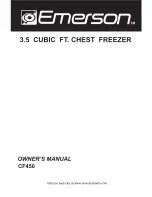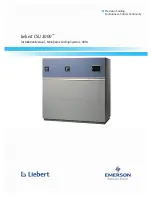
7.4
Defrosting of the appliance
CAUTION!
Never use sharp metal tools
to scrape off frost from the
evaporator as you could
damage it.
Do not use a mechanical
device or any artificial means
to speed up the thawing
process other than those
recommended by the
manufacturer.
About 12 hours prior to
defrosting set a lower
temperature in order to
build up sufficient chill
reserve in case of any
interruption in operation.
Defrosting in the fridge
compartment is automatic.
Defrost the freezer compartment when
the frost layer reaches a thickness of
about 3-5 mm.
To defrost freezer compartment:
1.
Switch off the appliance or pull out
electrical plug from the wall socket.
2.
Remove any stored food, wrap it in
several layers of newspaper and put
it in a cool place.
CAUTION!
A temperature rise of the
frozen food packs during
defrosting may shorten
their safe storage life.
Do not touch frozen
goods with wet hands.
Hands can freeze to the
goods.
3.
Remove the ice tray.
4.
Leave the door open. Protect the
floor from the defrosting water e.g.
with a cloth or a flat vessel.
5.
In order to speed up the defrosting
process, place a pot of warm water in
the freezer compartment. In addition,
remove pieces of ice that break away
before defrosting is complete.
6.
When defrosting is complete, dry the
interior thoroughly.
7.
Switch on the appliance and close
the door.
8.
Set the temperature regulator to
obtain the maximum coldness and
run the appliance for three hours
using this setting.
Only after this time put the food back
into the freezer compartment.
7.5
Periods of non-operation
When the appliance is not in use for long
periods, take the following precautions:
1.
Disconnect the appliance from
electricity supply.
2.
Remove all food.
3.
Defrost (if necessary) and clean the
appliance and all accessories.
4.
Leave the door/doors open to
prevent unpleasant smells.
8.
TROUBLESHOOTING
WARNING!
Refer to Safety chapters.
www.aeg.com
16
















































